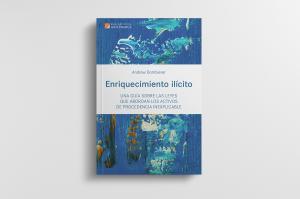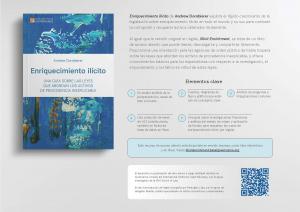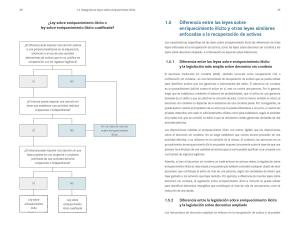Enriquecimiento ilícito – open-access book on illicit enrichment laws now available in Spanish
A Spanish translation of the Basel Institute's free open-access book on "Illicit Enrichment: A Guide to Laws Targeting Unexplained Wealth" is now available.
The book, Enriquecimiento ilícito: una guía sobre las leyes que abordan los activos de procedencia inexplicable, explores the rapid growth of illicit enrichment (unexplained wealth) legislation around the world and its use to target corruption and recover illicitly obtained assets.
Like the original English version, it is a peer-reviewed publication that is freely available to read, download and share at illicitenrichment.baselgovernance.org.
*Targeting unexplained wealth in the Spanish-speaking world*
Many Spanish-speaking countries have drafted and introduced illicit enrichment legislation to target corruption. These laws are particularly prevalent in South and Central America, where 25 countries have already enacted some form of this type of law.
While some countries have had success using these laws – such as Argentina and Mexico – other countries seem hesitant to consistently enforce these laws. Most of these countries have never actually used their laws at all.
This is a common problem throughout the world. Why? One reason is that there isn’t a significant amount of commentary and guidance regarding how these laws can be drafted, investigated, prosecuted and adjudicated.
A Spanish version of Illicit Enrichment will provide much-needed guidance to Spanish-speaking law enforcement agencies throughout the Americas region. It will also provide some foundational knowledge to practitioners regarding the investigation, prosecution and adjudication of these laws.
*The challenge of translating concepts, laws and practice*
This book was translated from English into Spanish by Pantoglot, Ltda. The translation was reviewed by Sandra Comesaña of Hengeler Mueller, a leading international corporate and white-collar law firm based in Germany. Commenting on the experience, she said:
“Andrew Dornbierer's and the Basel Institutes's work on Illicit Enrichment is an important contribution to the international effort of detecting, sanctioning and eventually preventing corruption and other financial crimes by "going after the money". The book's practical guidance on asset recovery in more than 100 jurisdictions is an invaluable tool for practitioners from both the private and public sectors and academics alike that is now finally available in Spanish, facilitating ready access for individuals and institutions specifically from the Spanish and Latin American markets.
Hengeler Mueller is grateful for having had the opportunity to contribute to the Spanish version. Hengeler Mueller regularly advises international clients in various matters involving complex questions of multi-jurisdictional asset recovery both on its own and together especially with the members of its Best Friends network of Europe's leading independent law firms.”
The pro-bono support for the translation review was facilitated by The Academy of Financial Crime Litigators, an independent, non-partisan global centre that shapes and advances financial crime litigation practices for the future.
*About the book*
Published in English by the Basel Institute on Governance in June 2021, Illicit Enrichment by Senior Asset Recovery Specialist Andrew Dornbierer features:
- Extensive analysis of jurisprudence and cases from around the world
- Tables, flow charts and graphics explaining key concepts
- Discussion of common questions and challenges
- Contributions from practitioners around the world, including a discussion of the introduction and evolution of Peru’s criminal illicit enrichment offence by Dr. Alcides Chinchay, a Senior Prosecutor of the Peruvian Public Prosecutor’s Office.
- Annex 1: A collection of laws from 103 jurisdictions, also as an online database (in English)
- Annex II: A step-by-step guide to financial investigations and source and application analyses to support illicit enrichment cases (in English)
Illicit Enrichment was developed and published by the Basel Institute on Governance through its International Centre for Asset Recovery, with research support from the NYU School of Law.
*Where to find it*
You can find the online version at: illicitenrichment.baselgovernance.org. Re-use and re-sharing are encouraged under a Creative Commons CC BY-NC-ND 4.0 licence.
The book is also available to print at cost price from Amazon worldwide.
Monica Guy
Basel Institute on Governance
monica.guy@baselgovernance.org
Visit us on social media:
Twitter
LinkedIn
Other
Webinar: Illicit enrichment laws – an underused tool to target corruption and recover stolen assets?
Legal Disclaimer:
EIN Presswire provides this news content "as is" without warranty of any kind. We do not accept any responsibility or liability for the accuracy, content, images, videos, licenses, completeness, legality, or reliability of the information contained in this article. If you have any complaints or copyright issues related to this article, kindly contact the author above.



